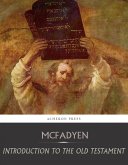Be it pleasant or unpleasant to be an unbeliever, one thing is quite clear: religious people intend the word Infidel to carry "an unpleasant significance" when they apply to it one. It is in their minds a term of reproach. Because they think it is wicked to deny what they believe.
To call a man an Infidel, then, is tacitly to accuse him of a kind of moral turpitude.
But a little while ago, to be an Infidel was to be socially taboo. But a little while earlier, to be an Infidel was to be persecuted. But a little earlier still, to be an Infidel was to be an outlaw, subject to the penalty of death.
Now, it is evident that to visit the penalty of social ostracism or public contumely upon all who reject the popular religion is to erect an arbitrary barrier against intellectual and spiritual advance, and to put a protective tariff upon orthodoxy to the disadvantage of science and free thought.
The root of the idea that it is wicked to reject the popular religion-a wickedness of which Christ and Socrates and Buddha are all represented to have been guilty-thrives in the belief that the Scriptures are the actual words of God, and that to deny the truth of the Scriptures is to deny and to affront God.
But the difficulty of the unbeliever lies in the fact that he cannot believe the Scriptures to be the actual words of God.
The Infidel, therefore, is not denying God's words, nor disobeying God's commands: he is denying the words and disobeying the commands of men.
No man who knew that there was a good and wise God would be so foolish as to deny that God. No man would reject the words of God if he knew that God spoke those words.
But the doctrine of the divine origin of the Scriptures rests upon the authority of the Church; and the difference between the Infidel and the Christian is that the Infidel rejects and the Christian accepts the authority of the Church.
Belief and unbelief are not matters of moral excellence or depravity: they are questions of evidence.
The Christian believes the Scriptures because they are the words of God. But he believes they are the words of God because some other man has told him so.
Let him probe the matter to the bottom, and he will inevitably find that his authority is human, and not, as he supposes, divine.
Dieser Download kann aus rechtlichen Gründen nur mit Rechnungsadresse in A, B, BG, CY, CZ, D, DK, EW, E, FIN, F, GR, H, IRL, I, LT, L, LR, M, NL, PL, P, R, S, SLO, SK ausgeliefert werden.









